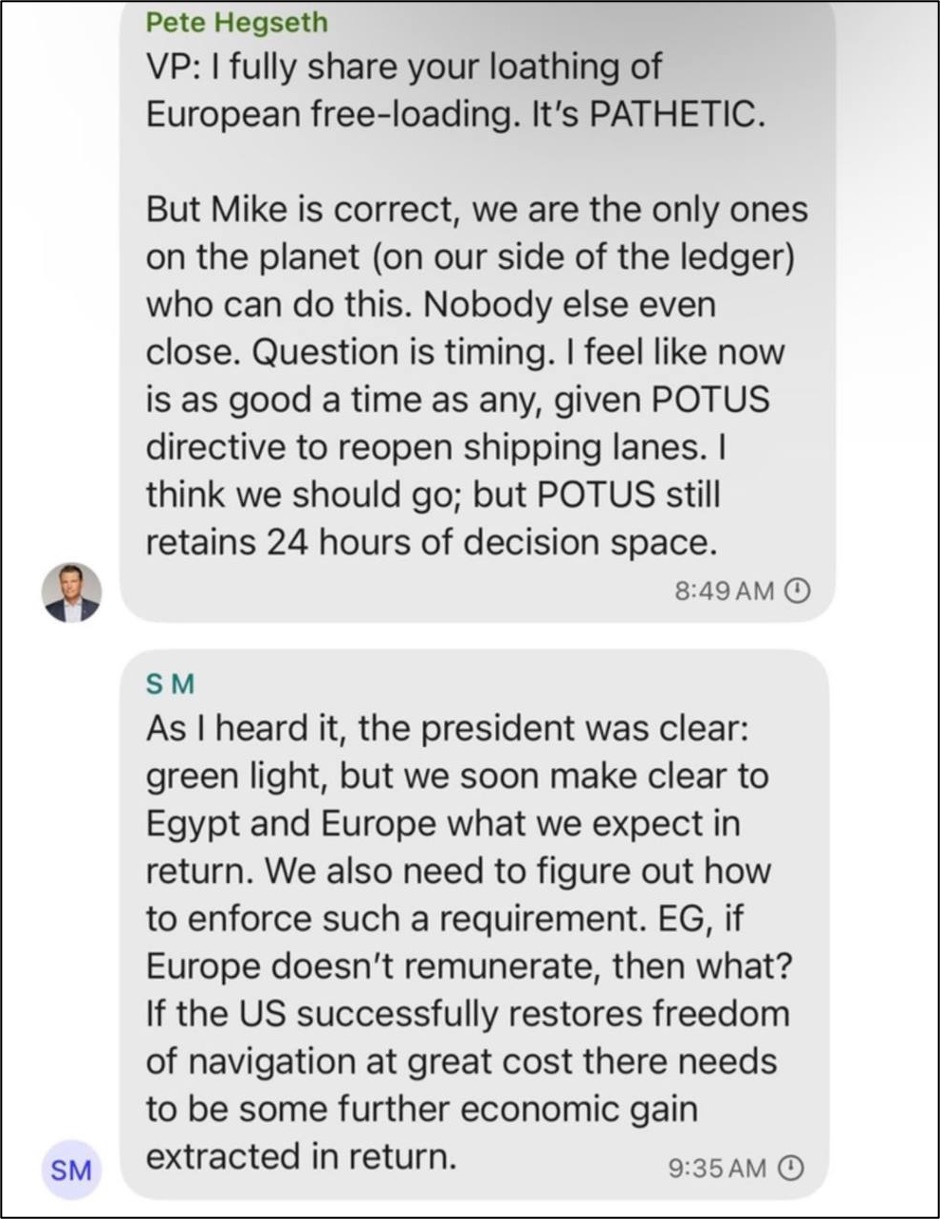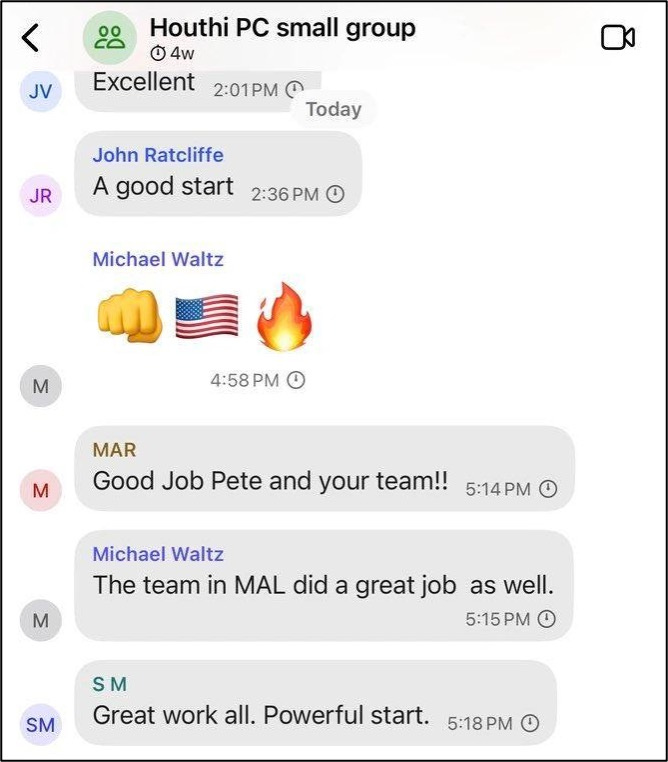Three Possible Causes for the The Atlantic's Goldberg Gaining Access to "War Plans"
"War plans" is a reach - but how the hell did this happen? I give you three reasons why, based on careful analysis of what was said and the people within the chat, this is likely to have occurred.
By now, you’ve likely heard about the incident in which Jeffrey Goldberg, the senior editor of The Atlantic (which has hit yours truly in the past), gained access to a Signal chat populated by some of the biggest names in the political world today and subsequently published some of the details of said chat. How this situation unfolds in the next 24 hours will likely determine if this has legs and will grow into a hammer with which the ammo-less mainstream media pounds the administration over, or if it will blow over, aided by the gale-force winds of a 24/7 news cycle that always finds the next shiny object for diverting attention to.
If you’ve never heard of Signal, it’s an encrypted messaging platform primarily used on smartphones, but also compatible with computers. It is used primarily for messaging and calling but also comes with a handy “delete” timer which automatically wipes chats clean after a pre-set time has elapsed. These chats are not stored away somewhere once the message timer expires – they are gone. People trying to keep a low profile are fond of Signal and use it way more than open calling or texting lines. If you don’t want someone who manages to snag your phone to have access to endless texts, you’re most likely using Signal.
As you may expect, all the usual suspects who think they would never compromise Operational Security (OPSEC) are crowing about the perceived botch, with Vice President J.D. Vance as the senior official present in the chat. Secretary of State Marco Rubio, Secretary of Defense Pete Hegseth, National Security Advisor Michael Waltz, CIA Director John Ratcliffe, advisor Stephen Miller, and others were also present and participating in the chat, which contained candid opinions from Vance and Hegseth about Europe’s unwillingness to shoulder the global defense load, as well as details about the airstrikes on Yemeni targets that occurred on March 15.
Unless there’s more to come, the above is all there is for public shock value. Those of you familiar with these group chats, or just with standard lingo pertaining to how military men interact with one another, may be underwhelmed, and for good reason. Not much has happened by way of comment except for Hegseth who, having just landed in Hawaii, accurately called out Goldberg for his role in the Russia, Russia, Russia hoax, the “suckers and losers” hoax, and other assorted garbage that has propelled his lengthy career in mainstream propaganda authorship.
As things stand now, here are my top three suspicions as to what likely happened:
I. Careless, but Innocent, Mistake
When creating a Signal chat, the administrator chooses names, which Signal transfers over from your regular contacts, from a scrollable listing. My Signal is configured to sort by last name, since that’s how I save people in my phone as contacts (First, Last). I scroll right past Simmons to get to Smith, and right past Brown to get to Bryant. I also have the phone numbers of many people, some journalists, I would not call to go have a beer with, stored for reference. It is possible, perhaps even likely, that someone (likely the originator) fat-fingered the list of check marks to include Goldberg in the chat.
Several group chats I’m in have members who never contribute to the group and have simply not been removed because no one has looked at the listing in God knows how long. I would expect someone like Goldberg, accidentally added to such a high-profile chat, would lay low and wait to see what happened. Given his history with the Trump administration, I am confident no one had him there on the grounds of merit or integrity.
II. Two Birds, One Stone






